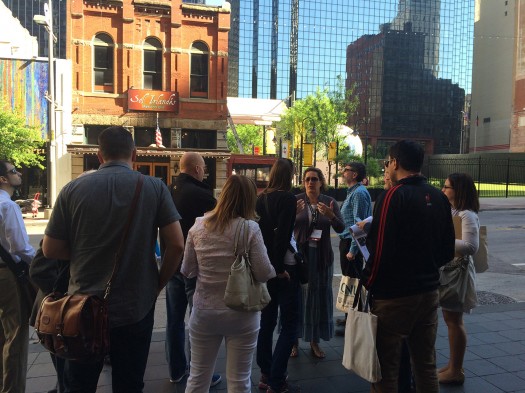Economic Development
Ideas Converging for Housing Opportunity: Some sorta oldish, lots very NUish
When we look back on this period, we might discover that the effort to ramp up realistic approaches to the challenges of community affordability reached some sort of tipping point in the spring and summer of 2015.
Read More“General Welfare” for the Next Generation
Lately I’ve been thinking about “health, safety, and general welfare” — the basis by which zoning is typically legitimized and measured — and wondering just how great a disconnect needs to form between our purported values and our land use regulations before we admit that something’s not working.
Read MorePlaceMakers’ Intrepid Inside-Baseball Highlight Reel from CNU23
Having just wrapped up what may have been our favorite CNU ever, in Dallas on April 29 through May 2, we want to share some of the ideas that resonated the most with us. The topics below are snippets of great insights from many voices, including the likes of Andrés Duany, Fort Worth Mayor Betsy…
Read MoreStay Hungry. Stay Foolish. The DNA of urban succession
Steve Jobs ended one of his most memorable speeches with the encouragement, “Stay hungry. Stay foolish.” He was quoting the message on the final page of the final publication of The Whole Earth Catalog, Stewart Brand’s version of pre-Google, assembled with typewriters, polaroid’s and scissors. Jobs’ point for me was to realize that the hunger…
Read MoreBetter Streets: Whatchu whatchu whatchu want?
“What a bunch of idiots. Don’t they know this will create a traffic nightmare?” Sound familiar? It’s the most commonly voiced complaint any time the community conversation turns to traffic calming. Taken at face value, it’s not an outrageous sentiment. After all, when you’re out and about, anything that stands between you and where you…
Read MoreUrbanism: Nothing to Fear
When the 9/11 attacks happened, all sorts of pundits started re-questioning whether cities should be decentralized, notably including Ed Glaeser. That questioning happened again after Hurricane Katrina and the continuing hurricanes along the Gulf Coast.
Read More‘Gentrification’ Redux: Wealth, opportunity, community
It’s pretty clear that breaking news in American cities is not going to let us duck debates about race, inequality and public policy. About time, right? Still, it doesn’t feel like we’re getting anywhere, what with partisans screaming, “You just don’t get it!” to their opposites across a wasteland of failed ideas. We seem to…
Read MoreThe Human Scale
This weekend, I again watched The Human Scale, a film from 2013, and got more stoked to meet Jan Gehl at the 23rd Congress for the New Urbanism (#CNU23) in Dallas in April. Jan will bring the Congress an update on his human scale work since the film was complete, but the ideas are timeless.…
Read MoreBlack Friday: Get your gorilla on
We’re happy when we go for a run. We’re even more happy when we go for a run in a gorilla suit — at least according to Roko Belic, director of the award-winning documentary, HAPPY. That’s because some change is gonna do ya good. Which is one of the many reasons that we placemakers advocate for immersive…
Read MoreMixing Light Industrial with Residential: The artisan’s delight
We’ve talked extensively here on PlaceShakers about how to integrate industrial uses into walkable neighborhoods. And the sorts of land use modifications, often via form-based codes, that are necessary to enable these uses within safe parameters. This week in Berlin, I was particularly inspired by the example set by Hackeschen Höfe, for mixing artisanal manufacturing…
Read More

